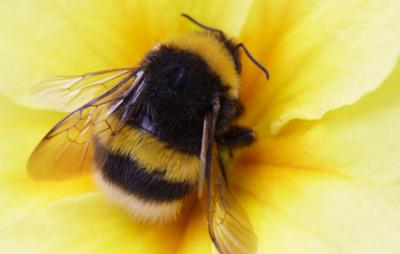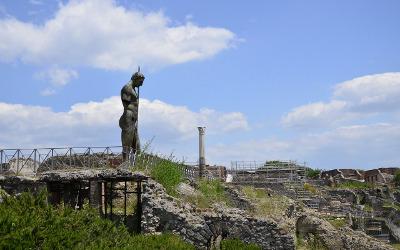Citizen Science data to inform pollinator-friendly plant lists for gardeners

New research recommends using citizen science data to decide on the best pollinator-friendly plants for creating urban garden habitats.
Widespread concern over declines in pollinating insects has led to numerous recommendations of which “pollinator-friendly” plants to grow to help turn urban environments into valuable habitats for such important wildlife.
Dr Nirwan Sharma and Dr Advaith Siddharthan from the OU’s Knowledge Media Institute were part of a team of researchers from the Royal Horticultural Society, University of Aberdeen and the Swedish University of Agriculture that used citizen science methods to evaluate such lists. Their paper, Citizen science data reveals the need for keeping garden plant recommendations up-to-date to help pollinators, published in Nature Scientific Reports used data gathered through their UK-wide citizen science programme (BeeWatch) to determine food plant use by the nations’ bumblebee species, and showed that much of the plant use recorded did not reflect practitioner recommendations.
They concluded that, whilst communicated widely by organisations and readily taken up by gardeners, generic “pollinator-friendly” lists fail to recognise the stark differences among species and pollinator groups or adapt to changing phenology or gardening practices. The paper calls for the increased use of up-to-date dynamic planting recommendations driven by live (citizen science) data to support pollinator-friendly management of garden spaces, and in the process transformative personal learning journeys through gardening.
The research was partially funded through the ongoing Engineering and Physical Sciences Research Council Grant Human-computer collaborative learning in citizen science (EP/S027513/1).
Principal Investigator Dr Siddharthan said:
"Planting for Pollinators pioneered the use of Artificial Intelligence technologies in Citizen Science projects to change behaviours and attitudes in society through the generation of data-driven gardening advice. This paper additionally demonstrates the scientific value of such data collected through citizen science.”
The Royal Horticultural Society (RHS) will use the information from the study to improve its recommendations for pollinator-friendly plantings, and to inform further research.
Dr Andrew Salisbury, RHS Principal Entomologist, said:
“Garden flowers are a vital resource for all types of pollinators. This paper demonstrates that compilers of these lists need to stay abreast of new data as this is made available. We see the RHS Plants for Pollinator lists as a living resource – one which we are always seeking to improve, and it is clear that gardeners’ observations are helping to increase its value.”
Find out more about research at the OU’s Knowledge Media Institute
Quarterly Review of Research
Read our Quarterly Review of Research to learn about our latest quality academic output.

Contact our news team
For all out of hours enquiries, please telephone +44 (0)7901 515891
